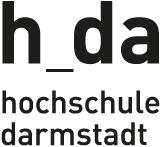contributing
institutions
Fraunhofer SIT
The Fraunhofer-Institute for Secure Information Technology is one of the most renowned research institutes for cybersecurity and privacy protection worldwide.
The institute focuses on central security challenges in the economy, administration and society, and conducts high-end application-oriented research and innovation developments. Multiple awards and distinctions affirm the high quality of their results and developments.
Fraunhofer SIT supports its partners mainly with the conception of new IT systems, the protection of existing IT infrastructures and the development of new products and services. Next to that, the institute also does consultations in major IT-security-related questions and contributes to national and international standardisation.
Fraunhofer IGD
The Fraunhofer-Institute for Computer Graphics Research IGD is the leading international institution for applied research in Visual Computing. Visual Computing means image- and model-based informatics. It unites computer graphics and computer vision. Simply put, it means the ability to turn information into images and to extract information from images.
Fraunhofer IGD focuses on two core themes relating to cybersecurity: Biometrics and Visual Analytics. In the field of Biometrics, Fraunhofer IGD has been working on promising technologies and new approaches since the 90s. Apart from that, Fraunhofer IGD has been focusing on the topic of Visual Analytics relating to cybersecurity, establishing new analysis techniques for the detection of foreign attack patterns.
Visualisation also acts as an important enabling technology for the development and improvement of automatic processes for cybersecurity.
TU Darmstadt
TU Darmstadt is involved with more than 30 specialised fields in eight departments in ATHENE: Informatics, Electrical Engineering, Information Technology, Social Sciences and History, Biology, Human Science, Engineering, Law, and Economics.
The research topics range from fundamental research in the area of cryptographic processes, meaning researches in the special research area CROSSING of the German Research Foundation (DFG), to applications such as NICER, a LOEWE core topic subsidised by the State of Hessen. NICER researches networked crisis management without infrastructures and aims to increase performance of communication without infrastructure long-term.
The DFG research training group "Privacy and Trust for Mobile Users" is researching privacy and trust in network services and sensor-based areas. Furthermore, Intel has been supporting the Intel Collaborative Research Center for Secure Computing – ICRI-SC at TU Darmstadt since 2011, which is the first research center for IT security by Intel outside of the USA.
Goethe University Frankurt/Main

Goethe University Frankfurt is a comprehensive university and, with over 45,000 students, one of the five largest universities in Germany. It has 590 professors who teach and conduct research. A total of 130 degree programs are offered in 16 departments. Despite its young age - founded in 1914 - Goethe University is one of the most research-intensive universities in Germany. A total of 19 Leibniz and 19 Nobel laureates have conducted research or studied at Goethe University.
At the Department of Computer Science and Mathematics, cybersecurity researchers conduct large-scale security studies, research the IT security of critical infrastructures, and develop new security architectures based on the zero trust paradigm. Other key areas of cybersecurity research at the Goethe University include secure identities, privacy-friendly technologies, and the legal issues surrounding IT security and privacy protection.
Goethe University has a long tradition of cybersecurity research and privacy protection. For example, the Schnorr signatures named after their inventor were developed here and it is the birthplace of data protection legislation in Germany.
Darmstadt University of Applied Sciences

With approximately 15,000 students, 300 professorships and over forty courses, the University of Applied Sciences in Darmstadt is one of the largest universities in Germany.
Its degree programs and research capacities range from Engineering Sciences, Mathematics, Information Technology and Computer Science to Business, Social Sciences and Social Work to Architecture, Media and Design.
Since the establishment of the LOEWE Center for Advanced Security Research Darmstadt (CASED), IT security has become a focal point for the research activities carried out at Darmstadt University of Applied Sciences, which have achieved internationally recognition for their excellence.
Over the past five years, University of Applied Sciences in Darmstadt has carried out externally funded projects with a value of nearly 12 million euro (financed by industry funding, LOEWE funding, BMBF funding and EU funding).
The topic of IT security is one of the key research areas at Darmstadt University of Applied Sciences. Currently, eleven professors are actively involved in three working groups for this area. These working groups focus on the topics of biometrics, Internet security, designing secure software and IT systems, usable security solutions, and mobile, secure and reliable telecommunication services for mutual authentication and identification. In Winter Semester 2010/11, Darmstadt University of Applied Sciences introduced a specialization in IT Security, and for Winter Semester 2014/15, it launched the cooperative degree program IT Security (KITS) and made IT Security a mandatory course for Computer Science students in the first semester of their Bachelor's Degree. These additions have sustainably enhanced teaching in the area of IT security at Darmstadt University of Applied Sciences.


